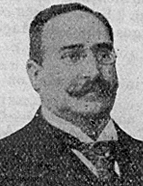

However, Barbosa Colen did not just laud his subjects. He also harshly criticised the actions of certain politicians, such as the financial policy of António José de Ávila, charging him with "bankruptcy" (ibid., vol. II, p. 102). Likewise, he did not shy from criticising certain behaviours of royalty of the time, surrounding the questão dos adiantamentos (advances) hotly debated during the reign of King D. Carlos I. Colen used the prevailing methods of the time in his historical writing. However, it is noteworthy that his explanations of past events was based not only on critical bibliography (including foreign works), but on abundant documentation from the era, combined with frequent value judgments. This aspect of the work of Barbosa Colen is particularly recurring. About an article written in the journal A Revolução de Setembro he wrote: «There is no need to underline the inconsistency of these comments, which on that occasion might have been taken seriously by those blinded by the same political passion, and who now, years later, leave, in absolute transparency, this ridiculous nonsensical argument» (ibid., vol. II, p.126-127). Along the same line, another feature of his work is the importance of his observation as a journalist, in which the historical past is mobilised in the criticism of the present, with politicians being the most targeted, especially when it came to referring to the usual manoeuvres of the ’electoral court‘ (ibid., vol. II, p. 101).
José Augusto Barbosa Colen was self-taught, a fact which makes his career and his body of work very expressive of his time. As Jorge Borges de Macedo noted, ‘all major Portuguese writers of the nineteenth century were journalists!’ (Da história ao documento, do documento à história, ’From History to the Document, from the Document to History‘, p. XXXV). The work of José Augusto Barbosa Colen was at the time widely read and has continued to be read until the present, used by historians of the late twentieth century and early twenty-first century.
